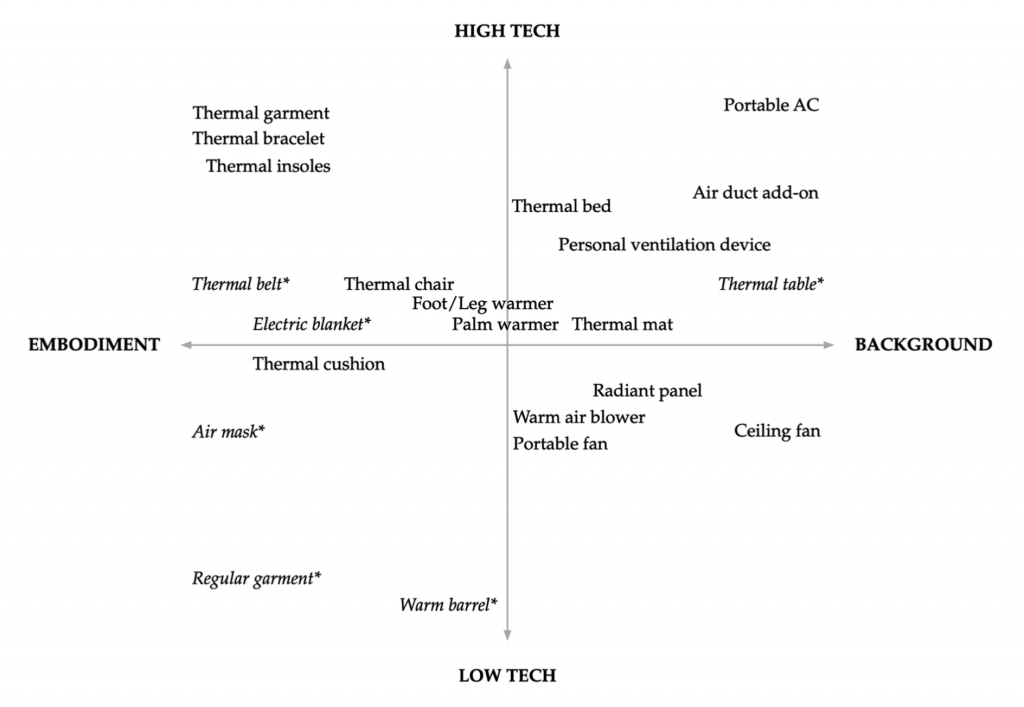
Katherine Exss, Paulina Wegertseder-Martínez, Maureen Trebilcock
Resumen
Personal Comfort Systems (PCS) are equipments that heat and/or cool occupants without affecting surrounding environments, ranging from commonly used devices to innovative technologies, and that tend to be controlled by people. These systems aim to address energy consumption and occupant satisfaction issues related to centralised air-conditioning. Although there are systematic studies on these systems, there is a lack of documentation regarding mediation characteristics between people and the built environment. This article presents a systematic review of PCS using a search of academic literature and patents, classifying PCS based on thermal categories and device typologies while introducing post-phenomenological mediation categories. The results show that most PCS fall into the thermal categories of ‘Heating’ and ‘Cooling and ventilation’. The review also presents a view of the PCS territory based on mediation attributes and technological complexity. Finally, the PCS’ characteristics are discussed based on the post-phenomenological concepts of Embodiment, Hermeneutic, and Background providing insights for future research opportunities and PCS development.
Palabras clave:
Personal comfort system, thermal comfort, post-phenomenology, mediation.
